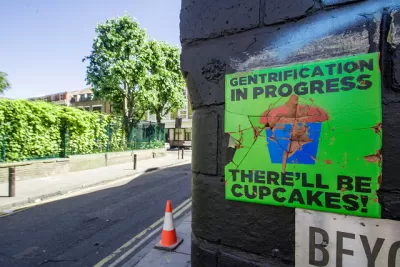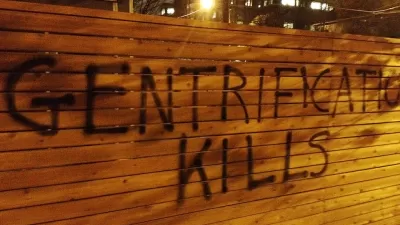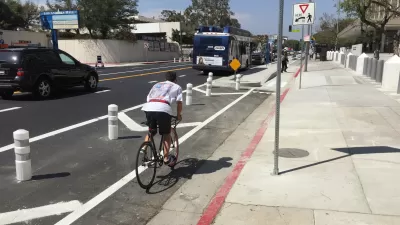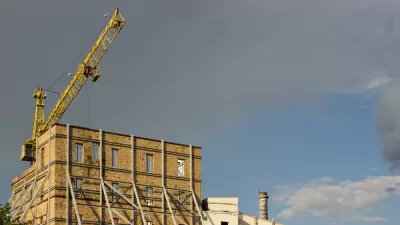Examining the complex sources of concerns about displacement and opposition to investment in low-income neighborhoods.

In an article in Governing, Aaron M. Renn explains the importance of cultural forces in shaping local responses to economic development initiatives. According to Renn, studies show that “gentrification-driven displacement either doesn’t happen in practice or is limited to a small number of locales nationally.” However, Renn points out, citing this data to allay concerns “misses a bigger point: Inflows of higher-income people do cause cultural displacement, as the values of the new wealthy residents become dominant in the community.”
What Renn calls ‘cultural displacement’ “can have practical and tangible consequences for daily life in these neighborhoods. In Oakland, Calif., gentrifiers have filed complaints with the city about gospel choir practice sessions at local Black churches, accusing them of being a noise nuisance.” Meanwhile, “Cultural concerns are frequently treated as illegitimate by intellectual elites.”
Renn notes that “As Jane Jacobs noted in The Economy of Cities, ‘Economic development, whenever and wherever it occurs, is profoundly subversive of the status quo.’ People in leadership positions in a community are generally benefiting from the status quo, hence can fear change.” Renn argues that “Cultural concerns should be understood and engaged with in order to create real progress,” rather than dismissed as unfounded fears.
FULL STORY: Why Many Poor Neighborhoods Fear Development

Alabama: Trump Terminates Settlements for Black Communities Harmed By Raw Sewage
Trump deemed the landmark civil rights agreement “illegal DEI and environmental justice policy.”

Study: Maui’s Plan to Convert Vacation Rentals to Long-Term Housing Could Cause Nearly $1 Billion Economic Loss
The plan would reduce visitor accommodation by 25% resulting in 1,900 jobs lost.

Planetizen Federal Action Tracker
A weekly monitor of how Trump’s orders and actions are impacting planners and planning in America.

Waymo Gets Permission to Map SF’s Market Street
If allowed to operate on the traffic-restricted street, Waymo’s autonomous taxis would have a leg up over ride-hailing competitors — and counter the city’s efforts to grow bike and pedestrian on the thoroughfare.

Parklet Symposium Highlights the Success of Shared Spaces
Parklets got a boost during the Covid-19 pandemic, when the concept was translated to outdoor dining programs that offered restaurants a lifeline during the shutdown.

Federal Homelessness Agency Places Entire Staff on Leave
The U.S. Interagency Council on Homelessness is the only federal agency dedicated to preventing and ending homelessness.
Urban Design for Planners 1: Software Tools
This six-course series explores essential urban design concepts using open source software and equips planners with the tools they need to participate fully in the urban design process.
Planning for Universal Design
Learn the tools for implementing Universal Design in planning regulations.
Caltrans
Smith Gee Studio
Institute for Housing and Urban Development Studies (IHS)
City of Grandview
Harvard GSD Executive Education
Toledo-Lucas County Plan Commissions
Salt Lake City
NYU Wagner Graduate School of Public Service





























